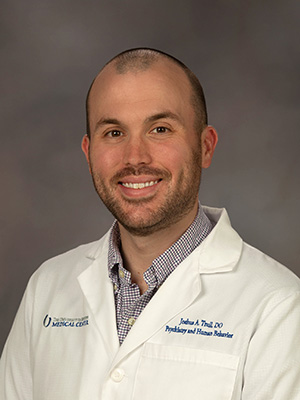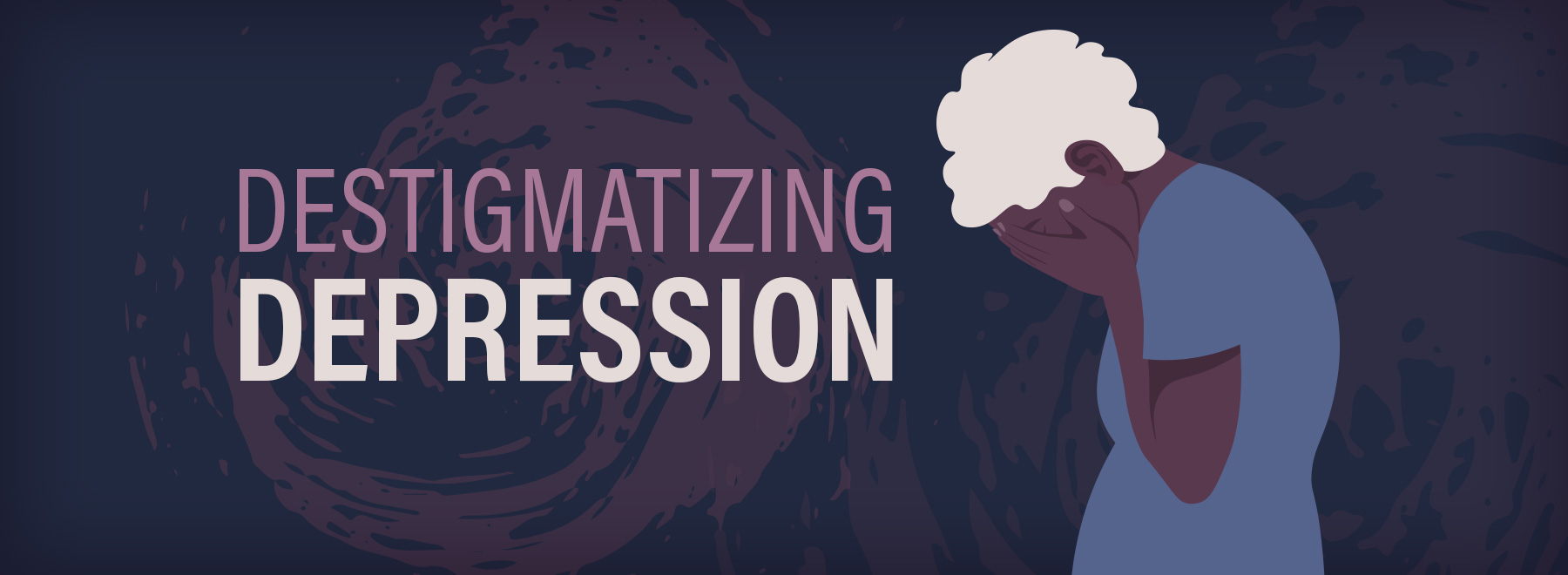Recognizing symptoms and seeking treatment can save lives
It’s easy to think depression is just a bad mood or lack of sleep, but it’s not something you can simply 'snap out of.’
It’s a serious medical condition that affects mood, thinking and daily functioning. Recognizing the difference between ordinary sadness and clinical depression and seeking treatment can save lives.
Depression is one of the most prevalent mental health conditions in the world. The World Health Organization lists it as a leading cause of disability. In the United States, millions of adults experience at least one episode of depression each year, and an increasing number of children and teens are affected as well.

“People often think, ‘Depression is something that happens to other people, not me,’” said Dr. Joshua Trull, assistant professor of psychiatry and human behavior. “It’s often easy to notice symptoms in others but dismiss them in ourselves.
“Someone might notice if their family member or friend seems down or begins withdrawing socially, but when it comes to themselves, they chalk it up to stress, exhaustion or normal, everyday sadness about whatever they have going on in their life.”
There’s not one single cause of depression. Genetics can increase risk, especially for those with a family history of depression. Genetics play a role, especially with family history. But environmental factors like trauma, stress or isolation can trigger it too. Chronic medical conditions such as diabetes, heart disease or chronic pain can contribute as well.
No matter the cause, depression affects both the mind and body, and its symptoms can be debilitating.
Those struggling may notice a loss of appetite, insomnia and lower energy levels. They may find it difficult to concentrate or endure feelings of guilt or worthlessness.
"People with depression sometimes experience anhedonia, which is characterized by a loss of interest in activities they once enjoyed, a general feeling of numbness or lack of motivation,” Trull said. “That can also include withdrawal from social relationships. They may find day to day interactions and activities difficult to get through or have thoughts of death or suicide.”
The appearance of depression can also look different for different people.
“Men and women experience depression at similar rates, but the symptoms may not always present the same,” Trull said. “Women often have an anxiety disorder along with depression. They often experience feelings of guilt or shame, or experience intrusive, ruminating thoughts. Men, on the other hand, often develop a comorbid substance abuse disorder along with depression. They tend to report feelings of anger, irritability or even aggressive behavior associated with their depression.”
Children and adolescents might display irritability, struggle in school, or report frequent stomachaches or headaches. Depression can make even simple tasks like getting out of bed, going to work or connecting with loved ones feel impossible.
Despite how common it is, the stigma surrounding depression is still one of the biggest barriers to care. Many people believe depression stems from a “weak personality” or lack of discipline, a misconception that keeps those suffering silent.
The good news is that depression is highly treatable. With the right combination of therapy, medication and lifestyle support, most people improve—and many fully recover.
“Another misconception people may have is that the only treatment for depression is medication,” Trull said. “A lot of people aren’t thrilled at the idea of taking medication. A lot of the time, we will recommend diet and lifestyle changes first. Sometimes just talking through problems with a counselor is all the person needs.”
Psychotherapy, often called “talk therapy,” can be a first-line treatment. Cognitive behavioral therapy helps patients identify negative thought patterns and learn healthier coping strategies. Interpersonal therapy focuses on improving relationships and communication.
Lifestyle adjustments can also make a difference. Regular exercise, balanced nutrition, consistent sleep, mindfulness practices and supportive social connections, including family and friends, can all complement medical treatment. “Don’t wait to seek help until it becomes overwhelming,” Trull said. "If you're experiencing a down mood, find yourself isolating, or have a lack of interest in things you enjoy, seek help now. Don't wait until it’s an emergency. Early intervention can be lifesaving.”
To schedule an appointment or to learn more about UMMC’s behavioral health services, call 601-984-6925 or visit our website here.
The above article appears in CONSULT, UMMC’s monthly e-newsletter sharing news about cutting-edge clinical and health science education advances and innovative biomedical research at the Medical Center and giving you tips and suggestions on how you and the people you love can live a healthier life. Click here and enter your email address to receive CONSULT free of charge. You may cancel at any time.



